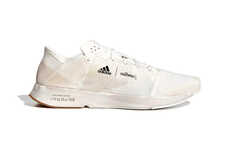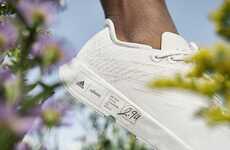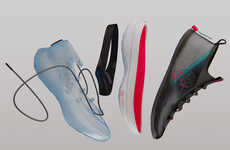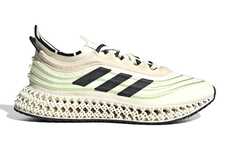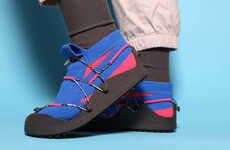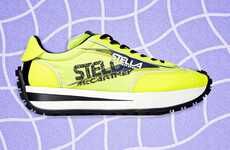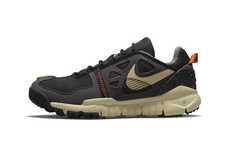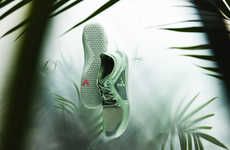adidas' Futurecraft Loop Footwear Design is Fully Recyclable
Laura McQuarrie — April 18, 2019 — Eco
References: adidas & fastcompany
The Futurecraft Loop by adidas is an innovative sneaker that was intentionally created to have a circular life cycle, meaning that the style will be worn to the end of its useful life and then returned to adidas so that it can be created into a new pair of shoes.
While adidas' designers have expressed that they have been working with the idea for Loop for some time, they were faced like challenges like the fact that some sneaker materials can't easily be separated. As the average shoe is made up of 12 different materials, adidas set out to work with a material that could be recycled more like a plastic bottle or cardboard box, and settled on a variant of its Boost polymer.
The first of adidas' Futurecraft Loop designs are set to be given away so that the company can determine how the footwear style will be priced and collected. A wider release of the innovative sneaker is set to happen in 2021.
While adidas' designers have expressed that they have been working with the idea for Loop for some time, they were faced like challenges like the fact that some sneaker materials can't easily be separated. As the average shoe is made up of 12 different materials, adidas set out to work with a material that could be recycled more like a plastic bottle or cardboard box, and settled on a variant of its Boost polymer.
The first of adidas' Futurecraft Loop designs are set to be given away so that the company can determine how the footwear style will be priced and collected. A wider release of the innovative sneaker is set to happen in 2021.
Trend Themes
1. Circular Economy Fashion - Integrating circular design principles in fashion to reduce waste and encourage sustainability, creating new business opportunities in green fashion.
2. Recyclable Footwear - Developing sneaker materials specifically made to be easily separated for recycling, leading to a new market for sustainable footwear and new business models.
3. Closed-loop Manufacturing - Implementing a closed-loop manufacturing process to reduce waste, adopt more sustainable practices and participate in the circular economy, lowering costs and increasing revenue.
Industry Implications
1. Footwear Industry - Incorporating circular design principles in footwear to reduce waste and create new opportunities for sustainable and green footwear products.
2. Fashion Industry - Adopting circular design and closed-loop manufacturing in fashion to promote sustainability, reduce waste, and appeal to eco-conscious consumers.
3. Waste Management Industry - Developing new systems for the proper collection, recycling and disposal of footwear materials to support a more circular economy, thus tapping into a new revenue stream.
3.7
Score
Popularity
Activity
Freshness
